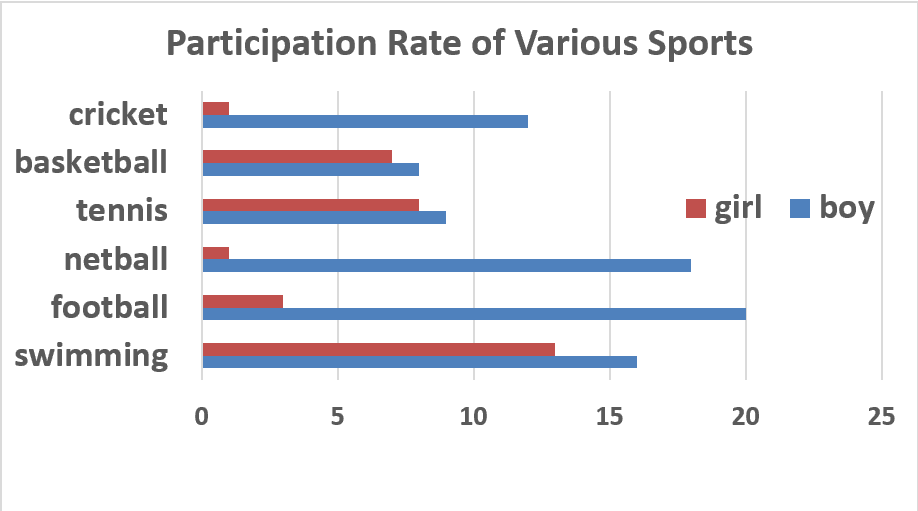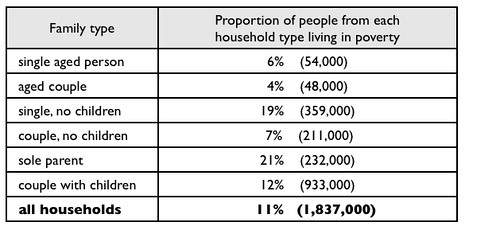GRE作文的高分模板相信许多同学在备考时都研究过,也有不少考生背了几个模板以备不时之需。下面小编就和大家分享GRE作文模板使用心得注意事项,来欣赏一下吧。
GRE作文模板使用心得注意事项
GRE写作模板两则实例分析
1. Different people have different views. Some people think A, while some think B. In my opinion, I think that A is a more reasonable choice.
2. In this argument, the author concludes that ____. At first glance, the author’s reasoning seems to be appealing, while clearly examining the author’s reasoning, we may find that it is unconvincing. The argument contains several facets that are questionable.
首先来看两个写作模板的开头部分。大家只要仔细阅读就会发现,其实第一个模板说了一堆废话,既没有引用到题目,也没有起到引导下文的作用,可以算是非常失败纯粹凑字数的错误模板。而第二个模板就比较实际了,各方面都照顾到了,把开头的功能充分发挥了出来,虽然说法上可能有些老套,但也基本让人挑不出错来。从上面这两个模板就可以看出,即使GRE写作用模板能够省力不少,也需要讲究正确的用法和选择。
GRE写作用模板有哪些好处?
使用模板的好处有很多,最主要的有两点,首先是可以帮助大家节省时间。GRE写作的考试时间非常紧张,30分钟写一篇400-500字的文章并不容易,用好模板能够帮助大家省下很多用来构思文章结构和逻辑论述的时间。其次是增强自信,对于一些写作水平不是很高,看到题目很容易卡壳没思路的考生来说,如果准备了模板,至少不用担心出现无话可写的情况,心理有底气自然能发挥出更好的水平。
用好作文模板需注意这些问题
然而,模板的选择其实也是一门学问。GRE考试越来越热门,网上乱七八糟的复习资料也越来越多,其中就包括了不少质量低劣的作文模板,比如小编刚才给出的那个错误模板例子。这些模板使用起来不仅对大家没有任何帮助,反而会浪费考生的复习时间,影响作文的得分。选择正确的模板,最主要的是看这个模板中的各部分能否发挥出应用的作用。比如开头部分适当引用作者观点,提出自己意见,然后引导出下文的具体论述,中间段要有层次的进行论述,同时相互之间需要有关联词和句子承上启下建立联系,而结尾段则要能够概括全文同时突出重点和开头前后呼应。如果一篇作文模板发挥不出这些作用,反而是堆砌了一段毫无意义的啰嗦文字,那么这个模板简直毫无价值可言。大家在选择模板的时候一定要仔细研究,不要被劣质模板糊弄。
如何避免模板使用中的雷同问题?
另外,模板在使用过程中,还可能出现的问题就是被判为作弊或者抄袭。这是因为模板大多来自一些经典的高分范文,这些内容都会被收录在ETS的GRE考试题库之中,而其中的许多关键句子则是完全照抄了原文。GRE作文的批阅存在电脑批卷环节,如果检测出文章中存在一定数量连续相同的单词,那么这篇文章就很有可能会被电脑认定为抄袭作弊的文章,从而受到扣分或者直接取消成绩的严厉惩罚。为了避免出现这种情况,大家在拿到模板后最好不要直接背诵,稳妥做法是把模板里的话根据自己的写作风格重写一下,既能够避免抄袭,也更方便大家记忆。
GRE写作满分范文
"It is unfortunate that today's educators place so much emphasis on finding out what students want to include in the curriculum and then giving it to them. It is the educators' duty to determine the curriculum and the students' duty to study what is presented to them."
The above quotation a concrete example of a major problem in our society today. While probably stated with good intentions, the quotation misses the mark on the path education needs to follow. As our society changes, so do our educational needs, and thus our educational curriculum needs to change also.
I find fault with the quotation on two fronts. First, the quotation does not acknowledge that curriculum must change. It seems to say the educator should decide when to change the curriculum. This does not lead to optimal learning conditions, ask anyone who studied high school history out of outdated textbooks. One can also infer some students won't be taught up-to-date informationin a wide variety of areas. This can become ideologically dangerous. What happens when students are not given full teachings of such vital movements as the Equal Rights Amendment or the Constitution of their country? An unenlightened society is a grave society with little hope. Curriculum must change, and should not be left to input from a single voice.
The second argument answers who should make curriculum adjustments. Obviously the educator still plays alarge role in this matter. The students also need to be part of the decision process. The two groups need a give and take relationship when deciding topics for the classroom. If the students could benefit from learning material that is presently not taught in the classroom, it should be entered. Sex education and AIDS education classes needed to be part of the curriculum to inform young people. Those classes were added and have worked well.
A third party that has a role in curriculum development is private business, including research labs, goods and service providers, and financial businesses. By hiring employees with certain capabilities they have indirectly influenced curriculum for years. As time passes they will have more input by demanding subpar schools raise the level of student test scores in certain areas, either by stating so or by not hiring unqualified students
The quotation echoes of a time when school learning consisted of the three "R"'s and little else.
better or worse our society is much more complex now than then.
For our schools to keep pace with our society we need to adjust our curriclum to what it should be, what we want it to be, and what it needs to be. The above quotation a concrete example of a major problem in our society today. While probably stated with good intentions, the quotation misses the mark on the path education needs to follow. As our society changes, so do our educational needs, and thus our educational curriculum needs to change also.
I find fault with the quotation on two fronts. First, the quotation does not acknowledge that curriculum must change. It seems to say the educator should decide when to change the curriculum. This does not lead to optimal learning conditions, ask anyone who studied high school history out of outdated textbooks. One can also infer some students won't be taught up-to-date informationin a wide variety of areas. This can become ideologically dangerous. What happens when students are not given full teachings of such vital movements as the Equal Rights Amendment or the Constitution of their country? An unenlightened society is a grave society with little hope. Curriculum must change, and should not be left to input from a single voice.
The second argument answers who should make curriculum adjustments. Obviously the educator still plays alarge role in this matter. The students also need to be part of the decision process. The two groups need a give and take relationship when deciding topics for the classroom. If the students could benefit from learning material that is presently not taught in the classroom, it should be entered. Sex education and AIDS education classes needed to be part of the curriculum to inform young people. Those classes were added and have worked well.
A third party that has a role in curriculum development is private business, including research labs, goods and service providers, and financial businesses. By hiring employees with certain capabilities they have indirectly influenced curriculum for years. As time passes they will have more input by demanding subpar schools raise the level of student test scores in certain areas, either by stating so or by not hiring unqualified students
The quotation echoes of a time when school learning consisted of the three "R"'s and little else. For better or worse our society is much more complex now than then. For our schools to keep pace with our society we need to adjust our curriclum to what it should be, what we want it to be, and what it needs to be.
COMMENTARY
This essay presents a competent discussion of the issue. The essay's argument -- that curriculum should be determined by many voices, including that of private business -- is clearly expressed and adequately developed. The writer supports this position with relevant reasons, including an analysis of the need for private business to become involved in education. Examples are clearly relevant (e.g., sex education and AIDS education are cited as examples of how schools are offering new classes to meet the contemporary needs), and the writer uses details to help develop and illustrate important points. While the essay presents several ideas that are thought provoking -- e.g., "An unenlightened society is a grave society with little hope" -- those ideas are not expressed precisely or persuasively enough to merit a score of 5.
The conclusion is appropriate; it reinforces the main idea of the essay, that schools need to keep pace with society and adjust curricula to meet the needs of both students and employers.
The essay consistently displays adequate control over the conventions of academic writing. Sentence structure is generally adequate, although many of the sentences would benefit from restructuring and the use of transitions to more effectively communicate the writer's ideas.
For all of these reasons -- competent analysis and adequate control of the elements of writing -- this essay received a score of 4.
GRE写作满分范文
"In our time, specialists of all kinds are highly over-rated. We need more generalists — people who can provide broad perspectives."
I disagree with the portion of the "Specialists of all kinds are highly overated" statement. Specialists are persons who take care of certain tasks or a specific area of whatever the case may be. These persons contibute more time and effort than those with general titles. the specialists are the ones who can tell or give the client more details on what is happening to them. The generalist can only give broad ideas which can be a number of things. The specialist narrows the ideas down to the specifics. For example if one goes to a "general practioner doctor" for pains in the chest area, he would tell the client that the poblem may be heart burns, or something else that's not be so serious, depending on the symptoms. He may also refer him to a cardiologist to be sure it's not any thing else. The point I'm making is that specialist are people who can help us out even more that our generalist. Also the fact that one would go to a specialist only in dire needs.
COMMENTARY
The response presents a position on the issue but the development of that position is seriously flawed. The writer begins by disagreeing with the assertion that "specialists...are highly over-rated" and then attempts to define and contrast specialists and generalists. The attempt is unsuccessful, partly because the descriptions are vague and ill-conceived.
Whereas the example of going to a "general practitioner doctor" is certainly relevant, the writer's claim that a general practitioner would tell a patient with chest pains that the problem "may be heart burns or something else that's not so serious" seems far-fetched.
The response is further weakened by poor word choice and by numerous errors in sentence structure, usage, and grammar. These problems, while not severe enough to seriously interfere with meaning, contribute to the overall rating of "2."
GRE作文相关文章:
★ GRE写作:高分冲刺
★ GRE写作:写作论据的技巧
★ 学习资料库
★ GRE词汇如果高效的背诵记忆
★ 组织主题夏令营活动策划方案2020
★ 夏令营实践主题活动策划方案范文
★ 夏令营特色活动策划方案
★ 《心理学与生活》读书笔记范文
★ 高三英语单词汇总
★ 有关金字塔原理读后感范文
GRE作文模板使用心得注意事项
上一篇:GRE写作如何恰当运用长难句
下一篇:GRE写作实用名人名言





